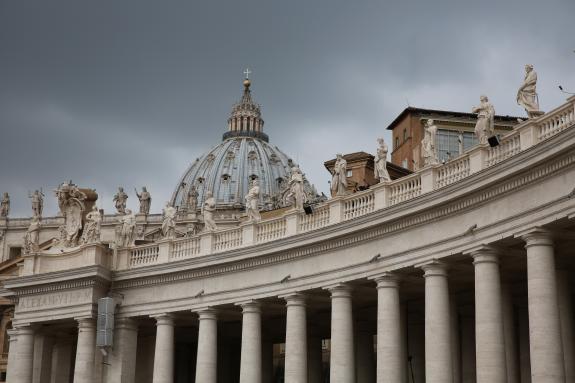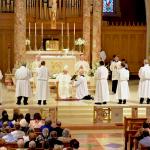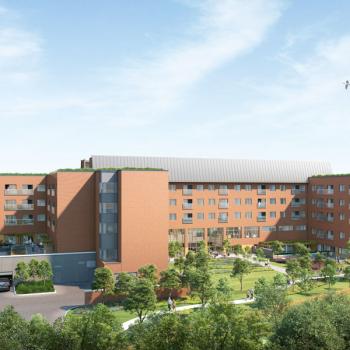
Details (roughly translated):
The Instrumentum laboris outlines an “inculturated liturgy” :
“The need for a process of discernment regarding the rituals, symbols and celebratory styles of indigenous cultures in contact with nature – reads – must be assumed in the liturgical and sacramental ritual. It is necessary to be careful to gather the true meaning of the symbol that transcends what is purely aesthetic and folkloristic, particularly in Christian initiation and marriage. It is suggested that the celebrations are of a festive type with their own music and dance, in native languages and clothes, in communion with nature and with the community. A liturgy that responds to its own culture so that it is the source and summit of their Christian life and linked to their struggles, sufferings and joys “. The sacraments “must be a source of life and a remedy accessible to all, especially the poor. It is necessary to overcome the rigidity of a discipline that excludes and alienates, through a pastoral sensibility that accompanies and integrates “.
Furthermore, as regards “the communities have difficulty in celebrating the Eucharist frequently due to the lack of priests”, the document, quoting Ecclesia de Eucharistia of John Paul II, states that “instead of leaving the communities without the Eucharist, change the selection and preparation criteria of the ministers authorized to celebrate it ». In function, again, of a “healthy decentralization” of the Church “,” the communities ask that the Episcopal Conferences adapt the Eucharistic rite to their cultures “.
As for the specific of the ministries, the Instrumentum laboris emphasizes that it is necessary “to promote indigenous vocations of men and women in response to the needs of sacramental pastoral attention; their decisive contribution lies in the impulse towards an authentic evangelization from the indigenous point of view, according to their uses and customs. These are indigenous people who preach to the natives with a deep knowledge of their culture and their language, capable of communicating the message of the Gospel with the strength and effectiveness of those who have their cultural background. It is necessary to pass from a “Church that visits” to a “Church that remains”, accompanies and is present through ministers who emerge from its own inhabitants.
Stating that celibacy is a gift for the Church, it is requested that, for the most remote areas of the region, the possibility of priestly ordination of elders, preferably indigenous, respected and accepted by their community, be studied, although they may already have a family established and stable, in order to ensure the sacraments that accompany and sustain the Christian life. Identify the type of official ministry that can be given to women, taking into account the central role they play today in the Amazon Church » .
The full document can be read here.
CNS has some background:
Published by the Vatican June 17, the document also said the church should consider “an official ministry that can be conferred upon women, taking into account the central role they play in the Amazonian church.”
The document, drafted after input from bishops’ conferences and local communities, acknowledged that in the church “the feminine presence in communities isn’t always valued.”
Those responding to a synod questionnaire asked that women’s “gifts and talents” be recognized and that the church “guarantee women leadership as well as increasingly broad and relevant space in the field of formation: theology, catechesis, liturgy and schools of faith and politics,” the 45-page document said.
The synod gathering in October 2019 will reflect on the theme “Amazonia: New paths for the church and for an integral ecology.”
When he announced the synod in 2017, Pope Francis said it would seek to identify new paths of evangelization, especially for indigenous people who are “often forgotten and left without the prospect of a peaceful future, including because of the crisis of the Amazon forest,” which plays a vital role in the environmental health of the entire planet.
The Amazon rainforest includes territory spread across Brazil, Ecuador, Venezuela, Suriname, Peru, Colombia, Bolivia, Guyana and French Guiana and is the largest rainforest in the world, covering more than 2.1 million square miles in South America.
While rich in biodiversity, natural resources and cultures, the Amazon rainforest has experienced significant deforestation, negatively impacting the indigenous populations in the area and leading to a loss of biodiversity.
“This synod revolves around life: the life of the Amazonian territory and its people, the life of the church (and) the life of the planet,” the document said.











